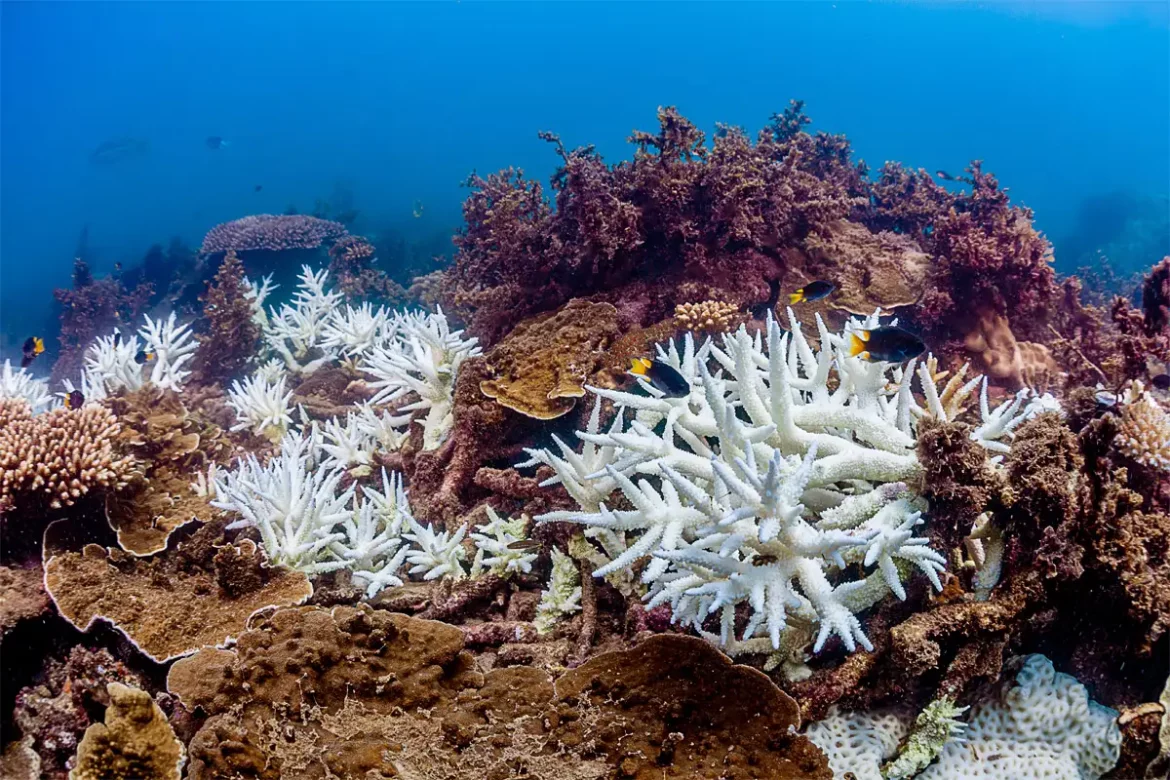Latest reports show that ocean temperatures over parts of the Great Barrier Reef have reached record levels this month, increasing fears of a second summer in a row of mass coral bleaching.
The bleaching of last summer that affected 91% of all individual reefs came after record ocean temperatures over the reef in December.
Rising ocean temperatures driven by human emissions of greenhouse gases mostly from burning fossil fuels caused six mass bleaching events along the reef in 1998, 2002, 2016, 2017, 2020 and 2022.
However, according to Noaa data, there is currently more accumulated heat over the reef in the north than at the same time last year. The current Noaa forecast also suggests that large parts of the northern reef will likely see significant bleaching and, in the weeks that follow, some areas could see enough heat to cause coral death by late January.
Read also: FAO urges ECOWAS countries to adopt low-carbon growth path
Data from the US government’s National Oceanic and Atmospheric Administration (Noaa) further shows that sea surface temperatures over the northern parts of the reef have been the highest for any November on a record going back to 1985.
Reports further suggest that cooler weather conditions and cyclone activity could stave off a mass bleaching event, with the peak period for accumulated heat over the reef not expected until February.
In his reaction, a leading expert on coral bleaching at James Cook University, Prof Terry Hughes said that he had never seen heat stress accumulating on the reef this early, but a “well-timed cyclone” in December could reduce the risk of bleaching.
“It is certainly the case that temperature records are tumbling. The warning signs are clear,” he said. “According to Noaa’s predictions, there’s a good chance we will see another back-to-back bleaching event. That was not supposed to be happening until the middle of this century.”
Recall that last summer’s mass bleaching, declared by the Great Barrier Reef Marine Park Authority (GBRMPA), was the first outbreak during a La Niña – a climate pattern that historically has kept ocean temperatures cool enough to avoid bleaching.
Story was adapted from the Guardian.
